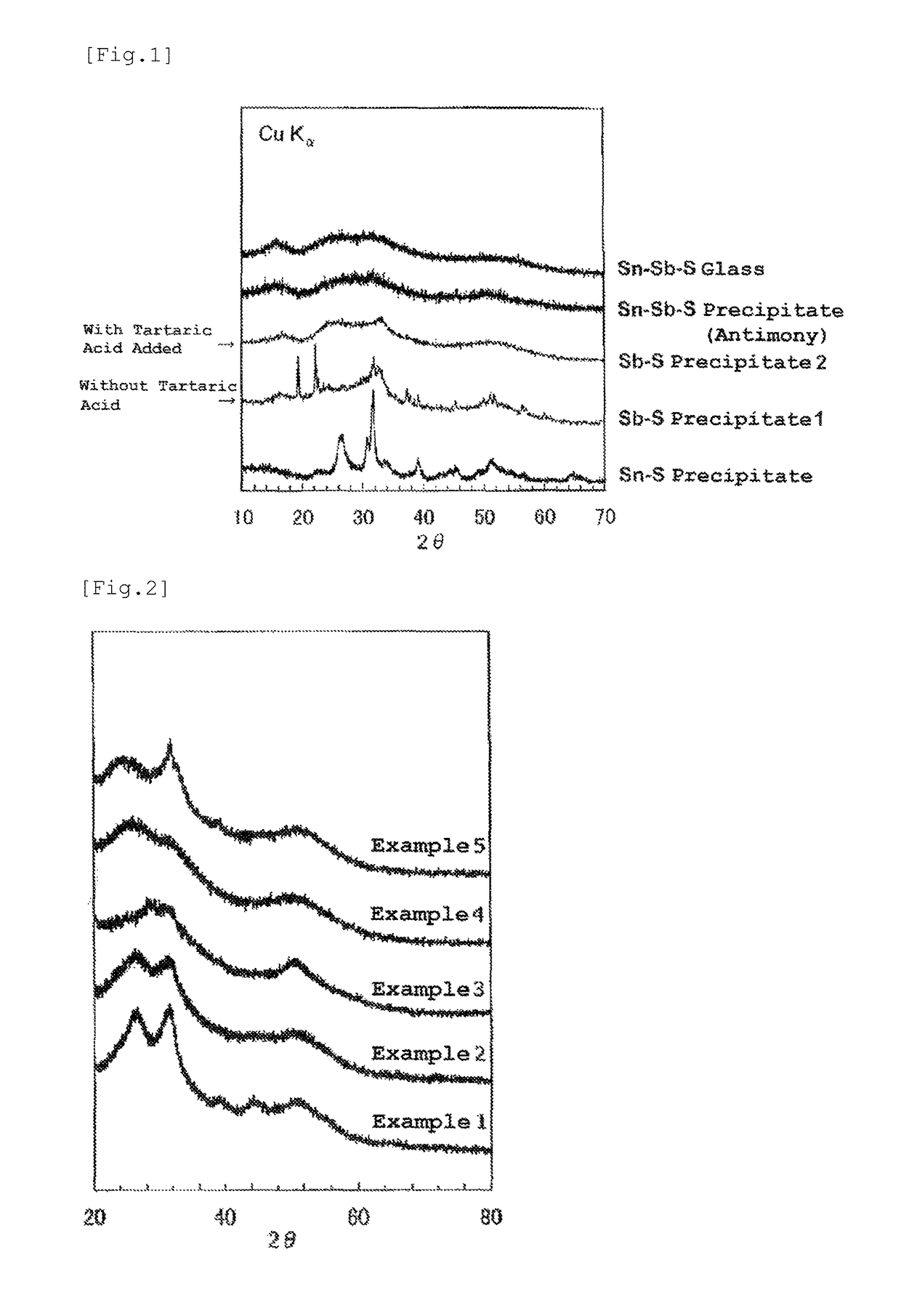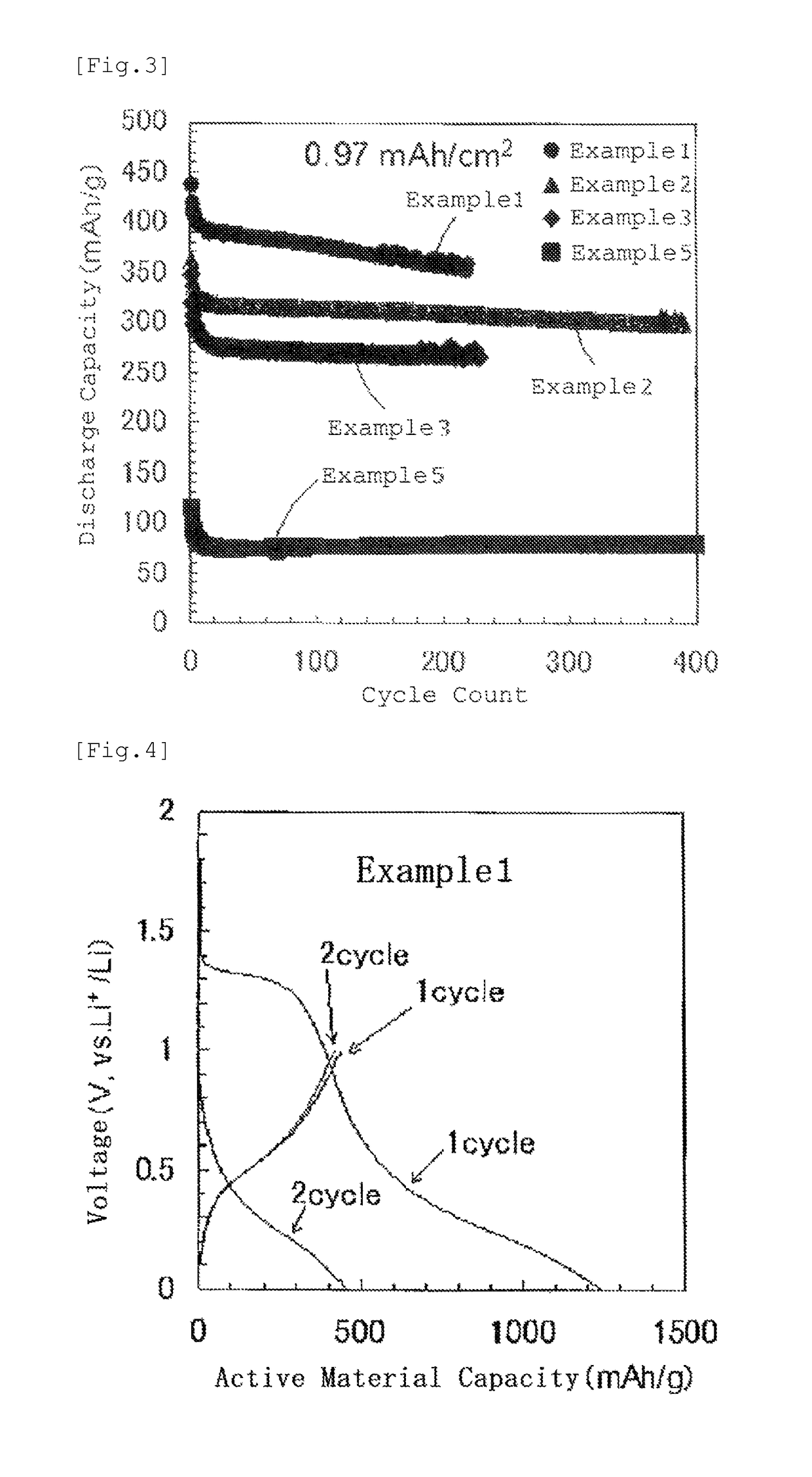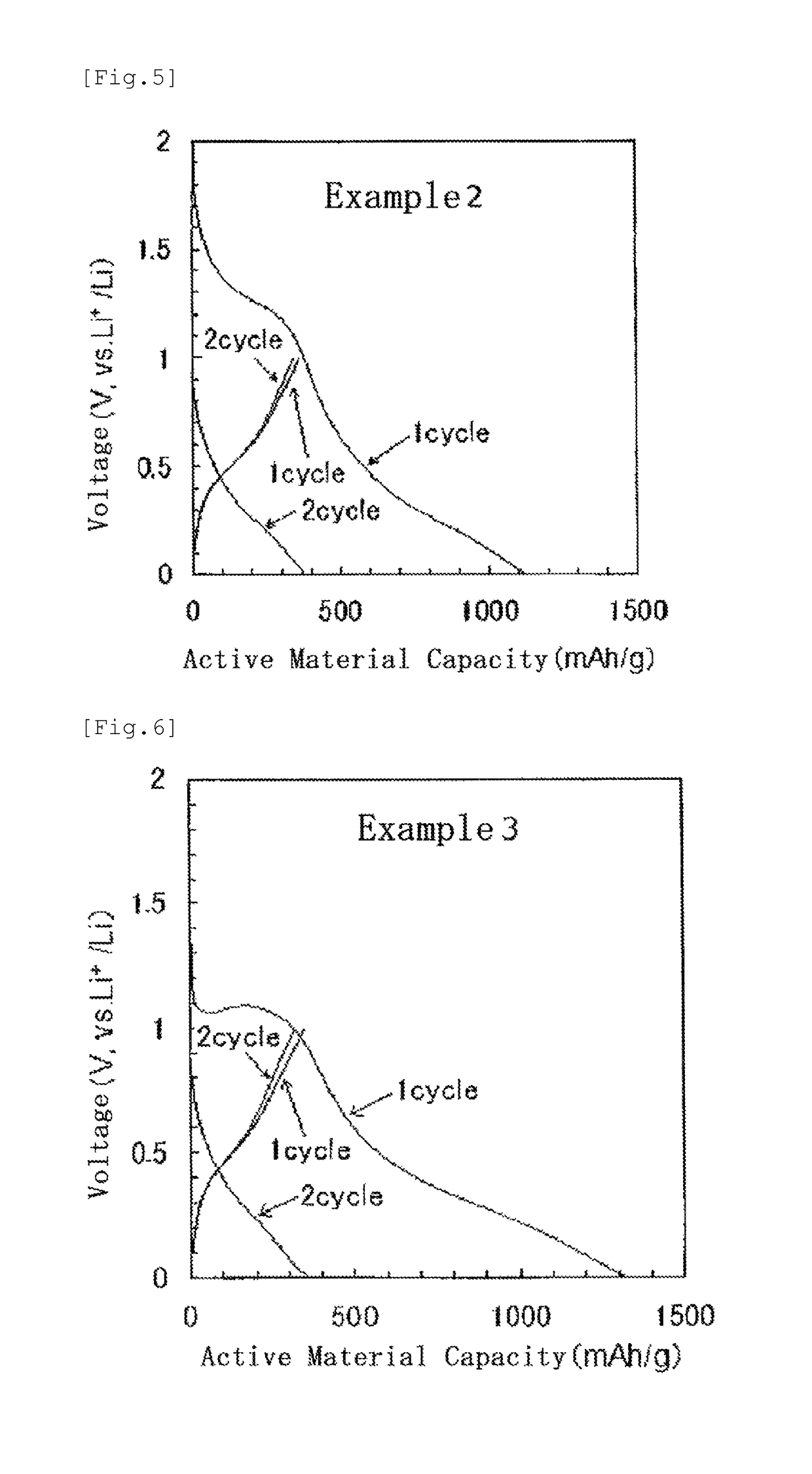Lithium secondary battery negative electrode active material and method for manufacturing same
a secondary battery and active material technology, applied in the field of high-performance negative electrode active material for lithium secondary batteries, can solve the problems of increasing production costs, lithium secondary batteries to be severely deteriorated, thermal runaway of batteries, etc., and achieves easy and inexpensive manufacturing of negative electrode active materials, high electrode capacity density, excellent output characteristics and cycle life characteristics
- Summary
- Abstract
- Description
- Claims
- Application Information
AI Technical Summary
Benefits of technology
Problems solved by technology
Method used
Image
Examples
example
[0066]Hereinafter, the present invention will be explained more specifically by Examples but is not limited to these Examples.
(1) Preparation of Sn—Sb Based Sulfide
[0067]In order to make a predetermined ratio of Sn and Sb showing in Table 1 below, a tin chloride (SnCl2) aqueous solution was mixed with an antimony chloride (SbCl3) aqueous solution to produce a tin-antimony chloride aqueous solution. The amount of tartaric acid as shown in Table 1 was added to this tin-antimony chloride aqueous solution, and then a sodium sulfide aqueous solution containing the amount of sodium sulfide (Na2S) as shown in Table 1 was mixed with the solution to prepare precipitates of the Sn—Sb based sulfide.
[0068]
TABLE 1Sn:SbTartaric(Molar Ratio)SnCl2•2H2OSbCl3NA2SAcidExample 190:108.148 g0.494 g 3.5 g4.160 gExample 270:306.370 g1.448 g 4.2 g4.104 gExample 350:504.982 g2.341 g5.08 g4.069 gExample 430:701.384 g1.584 g5.38 g4.201 gExample 510:900.500 g2.185 g6.48 g4.000 g
[0069]XRD patterns of the obtaine...
PUM
| Property | Measurement | Unit |
|---|---|---|
| size | aaaaa | aaaaa |
| size distribution | aaaaa | aaaaa |
| temperature | aaaaa | aaaaa |
Abstract
Description
Claims
Application Information
 Login to View More
Login to View More - R&D
- Intellectual Property
- Life Sciences
- Materials
- Tech Scout
- Unparalleled Data Quality
- Higher Quality Content
- 60% Fewer Hallucinations
Browse by: Latest US Patents, China's latest patents, Technical Efficacy Thesaurus, Application Domain, Technology Topic, Popular Technical Reports.
© 2025 PatSnap. All rights reserved.Legal|Privacy policy|Modern Slavery Act Transparency Statement|Sitemap|About US| Contact US: help@patsnap.com



